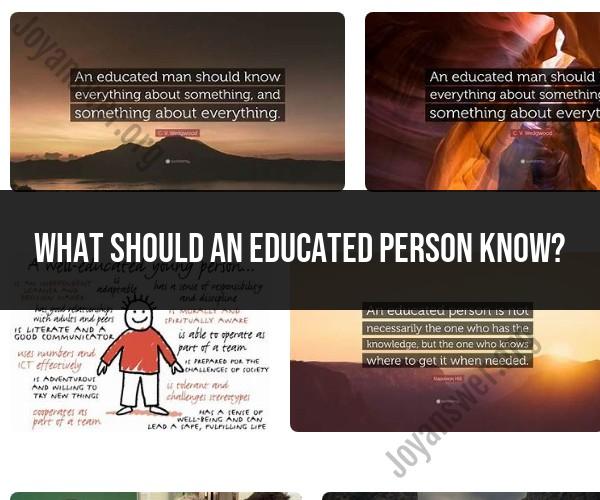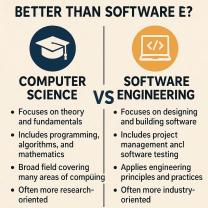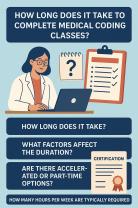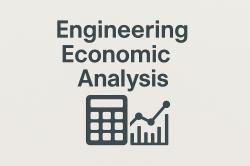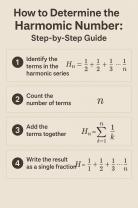What should an educated person know?
An educated person should possess a well-rounded set of knowledge and skills that enable them to engage in thoughtful, informed, and meaningful interactions with the world. While the specific knowledge and skills may vary depending on individual interests and goals, here are some fundamental areas of knowledge and skills that are typically considered important for an educated person:
Literacy and Communication:
- Proficiency in reading, writing, and speaking is foundational. An educated person should be able to express ideas clearly, communicate effectively, and understand and interpret written and spoken language.
Critical Thinking and Problem-Solving:
- The ability to analyze information, evaluate arguments, and solve complex problems is crucial. Critical thinking skills help individuals make informed decisions and navigate various challenges.
Scientific Literacy:
- A basic understanding of scientific principles and methods is essential. This includes knowledge of fundamental scientific concepts, the scientific method, and an awareness of current scientific issues.
Mathematics and Numeracy:
- Proficiency in basic mathematics and numeracy skills is valuable for everyday life and decision-making. It includes skills such as arithmetic, statistics, and data analysis.
Cultural Awareness and Appreciation:
- An educated person should have an appreciation for different cultures, traditions, and perspectives. This includes an understanding of world history, geography, and cultural diversity.
Social and Emotional Intelligence:
- The ability to navigate social situations, understand human behavior, and demonstrate empathy and emotional intelligence is important for personal and interpersonal growth.
Ethical and Moral Reasoning:
- An educated person should have a strong ethical framework and the ability to engage in ethical reasoning. This includes understanding ethical dilemmas and making principled decisions.
Information Literacy:
- In the age of information, knowing how to find, evaluate, and use information from various sources, including the internet, is essential.
Digital Literacy:
- Proficiency in using digital technologies and tools is increasingly important. This includes skills related to computers, the internet, and software applications.
Financial Literacy:
- Understanding personal finance, budgeting, investing, and economic principles is crucial for making sound financial decisions.
Health and Well-Being:
- Basic knowledge of health and wellness, including nutrition, exercise, and mental health, contributes to a balanced and fulfilling life.
Civic Engagement and Citizenship:
- An educated person should be aware of their rights and responsibilities as a citizen, be informed about current events and politics, and participate in civic activities.
Creative Expression:
- The ability to engage in creative activities, whether through art, music, writing, or other forms of expression, is an important aspect of personal development and self-expression.
Lifelong Learning:
- The commitment to lifelong learning and adaptability is a hallmark of an educated individual. Being open to new ideas and willing to acquire new knowledge and skills is essential in a rapidly changing world.
Interdisciplinary Knowledge:
- Recognizing the interconnectedness of different fields of knowledge and being able to apply knowledge and skills across disciplines is valuable for solving complex problems.
It's important to note that education is an ongoing journey, and what it means to be educated can vary from person to person. An educated person should have the curiosity and motivation to continue learning and growing throughout their life. Additionally, the ability to think critically, adapt to change, and engage in meaningful contributions to society are key indicators of an educated individual.
Knowledge and Wisdom: What Should an Educated Person Know?
An educated person is someone who has a broad and deep understanding of the world. They have knowledge of a variety of subjects, including history, science, literature, and the arts. They also have the ability to think critically and to apply their knowledge to new situations.
Here are some of the things that an educated person should know:
- The basics of science and mathematics: This includes understanding the laws of physics, chemistry, and biology. It also includes understanding basic mathematical concepts such as algebra, geometry, and calculus.
- History: This includes understanding the major events and trends that have shaped the world. It also includes understanding the different cultures and civilizations that have existed throughout history.
- Literature: This includes understanding the major works of literature from different cultures and time periods. It also includes understanding the different literary devices that authors use to create their stories.
- The arts: This includes understanding the different forms of art, such as painting, sculpture, music, and dance. It also includes understanding the different theories and movements that have influenced art throughout history.
- Critical thinking skills: This includes the ability to analyze information, evaluate arguments, and form your own conclusions. It also includes the ability to think creatively and to solve problems.
The Informed Citizen: Areas of Expertise for an Educated Individual
In addition to the general knowledge that an educated person should have, it is also important for educated individuals to be informed citizens. This means having knowledge of current events, government, and civic engagement.
Here are some of the areas of expertise that an informed citizen should have:
- The United States Constitution: This is the supreme law of the land, and it is important for citizens to understand their rights and responsibilities under the Constitution.
- The American political system: This includes understanding the different branches of government, the electoral process, and the role of the media in politics.
- Current events: This includes being aware of the major issues facing the country and the world. It also includes being able to evaluate different perspectives on current events.
- Civic engagement: This includes understanding how to participate in the democratic process and how to make a difference in your community.
Lifelong Learning: The Ongoing Quest to Broaden an Educated Mind
Education is not something that happens once and then it's over. It is an ongoing process that should continue throughout our lives.
Lifelong learners are constantly seeking out new knowledge and experiences. They are open to new ideas and they are always challenging themselves to grow.
Here are some tips for lifelong learning:
- Read widely: Read books, articles, and blogs on a variety of subjects.
- Take classes: Take classes at a local community college or university. You can also take online classes or attend workshops and seminars.
- Talk to people: Talk to people who are knowledgeable about different subjects. Ask them questions and learn from their experiences.
- Travel: Travel to different countries and cultures. This is a great way to learn about different ways of life and to broaden your horizons.
- Volunteer: Volunteer your time to a cause that you care about. This is a great way to learn about different issues and to make a difference in your community.
By following these tips, you can become a lifelong learner and continue to broaden your education throughout your life.
